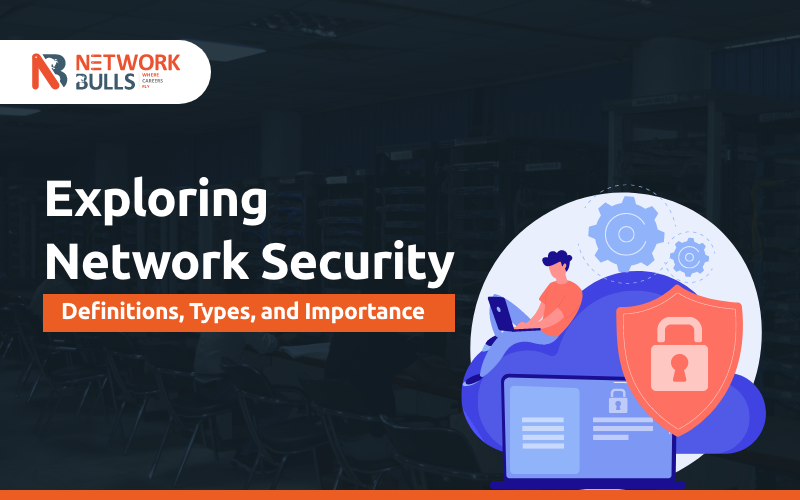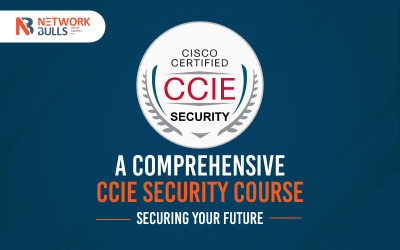Exploring Network Security: Definitions, Types, and Importance

A set of technological and digital protocols, policies, and practice procedures used in protecting a computer network against intrusion is termed network security.
With hackers developing new digital and scientific methods to intrude into enterprise networks to steal corporate information, all sales corporations, companies, and organisations are now extremely concerned about fully securing their networks.
It is against this backdrop that the prime importance of computer network security comes into play.
What is network security? Definitions and Types
Network security can be explained as the specific scientific methods implemented within a network to create shields and layers to stop third-party unauthorised entry into the system to steal data.
It can be defined as activities aimed at, designed for, and meant to safeguard enterprise data and corporate information. Basically, you are integrating and tightening the security aspects using different tools to thwart the attempts of hackers to hack your computer system and network. You can use both hardware and software for this purpose.
What are the different types of network security?
A network can be secured using various scientific and digital methods. The most commonly used types of network security run as follows:
-
Firewall: This particular security protocol is widely used across the world. A firewall is very effective in controlling outgoing and incoming data packets or traffic on a given network. To ensure this, predetermined rules are applied to ensure security. Any toxic, unfriendly, or malicious traffic is warded off the network, making it impossible for such obnoxious traffic to make an entry into your network.
-
Network segmentation: This is another important type of security. The utility of network segmentation can be gauged from the fact that it clearly defines the boundaries between network segments where data assets within the group have a common function, role, or risk within an enterprise. Segmentation helps confidential information and data remain safe.
-
Access Control: It secures the network by denying access to the network to an unknown entity. The IAM (Identity and Access Management) technique can identify the genuineness of the user, and the RBAC (Role-Based Access Control) protocol can deny any third party or unauthorised user entry into the network. The integration of IAM and RBAC can fully secure the computer network of an enterprise.
-
Remote Access VPN: An enterprise can fully secure the network with the help of a VPN. The VPN can secure access to an enterprise network for individual hosts and clients like mobile users, extranet consumers, and telecommuters. The security is ensured as each host has VPN client software that uses a web-based client. Endpoint compliance scanning, encryption of all transmitted data, and multi-layer authentication ensure security.
-
ZTNA: The protocols of Zero Trust Network Access, or ZTNA, which differ from VPN, envisage that a user should only have the access that they require to fulfil their roles. This is also known as SDP (Software-Defined Perimeter). The user identification process in ZTNA is quite rigorous, both digitally and technically, to ensure almost total network security.
-
Sandboxing: If you implement this security method, you have to run code on a host machine that mimics end-user operating environments. The files or code are checked and observed as they open, detecting threats from any malicious behavior. If files are found to be obnoxious, they are prevented from entering the network.
-
Email Security: The email service providers integrate built-in security features to thwart the efforts of hackers to hack the network.
-
Cloud Network Security: This popular technology uses SDN (software-defined networking) and SD-WAN (software-defined wide area network) to secure the files. This allows network security to remain fully secured in private, public, hybrid, and cloud-hosted FWaaS (Firewall-as-a-Service) deployments. As workloads and applications are not hosted on-premises in a local data centre, the degree of security is much higher than for other systems.
-
DLP: Data Loss Prevention (DLP) can secure the network to a great extent. It integrates and combines technology and best practices to block the exposure of data outside of a corporate company.
Network security Q&A
As your career in security totally depends on bagging a Cisco security certification, you have to appear in the exam and clear it. For this, you must know a set of network security Q&As. Without knowing this, you cannot crack the exam, as it is quite tough and the percentage of students passing the exam is very low.
Network security questions and answers
You must spend quality time knowing the types of questions and their answers. It is also required that you thoroughly master the network security questions and answers. This is needed as the questions asked in the written test and in the lab test are extremely hard. Without regular practice answering the questions, it might be difficult to crack the exam.
Network security course
The network security course is quite vast and difficult, as you have to pass both the written and lab tests. Your thorough understanding of all aspects of security is needed. The best thing you can do is get admission to a reputed network training institute in India to master the tracks or topics and their answering methods.
Network security institute in India
In India, there are a large number of network training institutes. Network security institutes in India can be found in almost every city. But all such security institutes may not be in a position to ensure your guarantee of clearing the tough exam and lab tests. In this respect, you should consider taking admission to the Gurgaon-based Network Bulls. On studying the background of Network Bulls, you would know that this institute received 18 prestigious awards for its excellence in providing training strictly adhering to the model of Cisco Systems of the USA. The pass rate of students from this institute is also high as compared to other training institutes.
Conclusion
Securing the company network comes at the forefront of all business operators. Due to this reason, all enterprises look for expert security hands-on training under the Cisco model.
The demand for security in the IT job market is currently much greater than its overall supply. This is the right choice if you have decided to go for network security certification. For more information, contact Network Bulls at 1800-313-2545 now!
Also Check
- RECOMMENDED POSTS
-
Trending (0)

-
Network Bulls Placements (53)

-
CCIE (101)

-
CCNP (32)

-
CCNA (40)

-
Awards (14)

-
Network Bulls Reviews (53)

-
Informational Articles (74)

-
Technical Articles (26)

-
CCIE Success Stories (40)

-
Summer Training Courses (5)

-
CCIE Security Version 5 (34)

-
CCIE Data Center (19)

-
MCSE (3)

-
Industrial Training (10)

-
Microsoft Certification (3)

-
Ask NB (7)

-
Network Bulls Offers (6)

-
Best Institute for CCIE Training in India (118)

-
CCIE Training Courses (78)

-
DHCP (2)

-
Webinars (6)

-
Training (127)





















